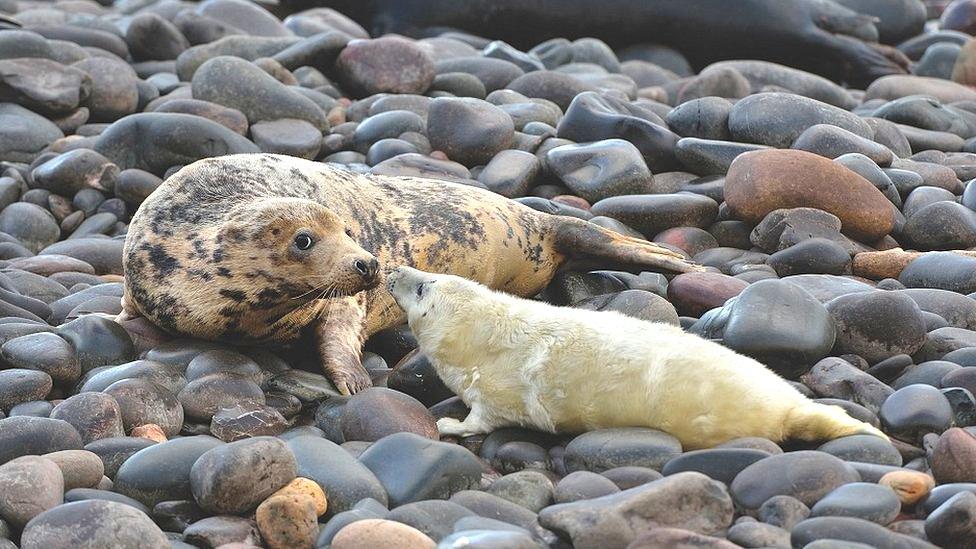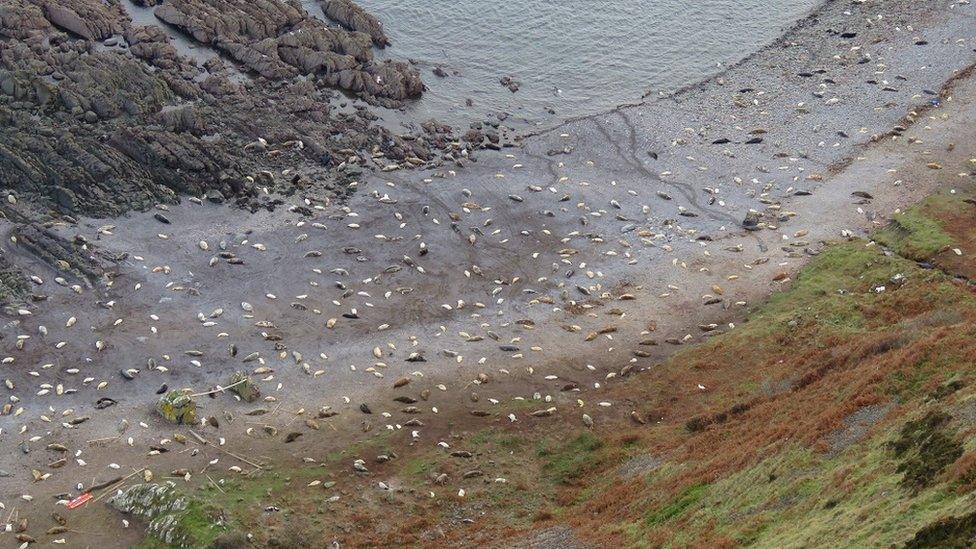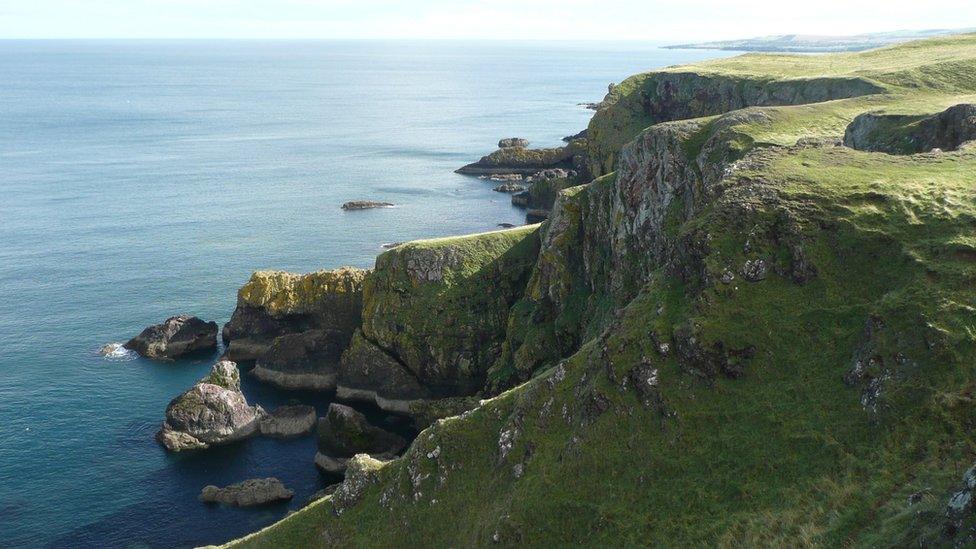St Abb's Head nature reserve seal pups reach record numbers
- Published

NTS said there was no colony at all in the area just 13 years ago
An "extraordinary explosion" in seal pup numbers has been recorded at a south of Scotland nature reserve.
The National Trust for Scotland (NTS) said there was no colony at all at St Abb's Head as recently as 2007.
A final total of 1,806 pups has been recorded on the east coast site this year.
NTS said one reason for the increase could be the "lack of disturbance" in the area but it is keen to carry out further studies into the causes.

This year more than 1,800 pups have been recorded
Grey seals breed on the nature reserve from October to December.
Head ranger at St Abb's Head, Ciaran Hatsell, said the growth in numbers was an "incredible story".
"I have worked in wildlife for some time and have been studying seal colonies for the past 10 years and I'm amazed by how this population has risen," he said.
He said the grey seal was one of the rarest in the world with a global population of roughly 300,000 - about 45% of them in the UK.

"To have this rise here is very special and I feel very privileged to be able to count and work with these animals," he said.
"If you go back to 2007, there was no colony here at all and the population is still growing, which shows that the ecosystem is healthy and that they have plenty of food in the area.
"It's hard to draw conclusions about the sudden rise without the science or data behind it, but we can suggest it's down to lack of disturbance or that the seals have come from another North Sea colony that has reached capacity."
Two counts are carried out in the peak of pupping season in mid to late November using binoculars or high-resolution images of bigger colonies.
NTS staff have carried out surveys this way since 2015 and report a "steady rise".
It is now hoped more work can be done to study the seal population in the area.

Some beaches in the area are inaccessible to the public
Some of the beaches at St Abb's Head are sheltered by surrounding cliffs and are largely inaccessible to the general public, providing a safe haven for seals and their pups.
Electric fences have been put up in other areas to ensure they are not disturbed and visitors are urged only to view them at a distance.